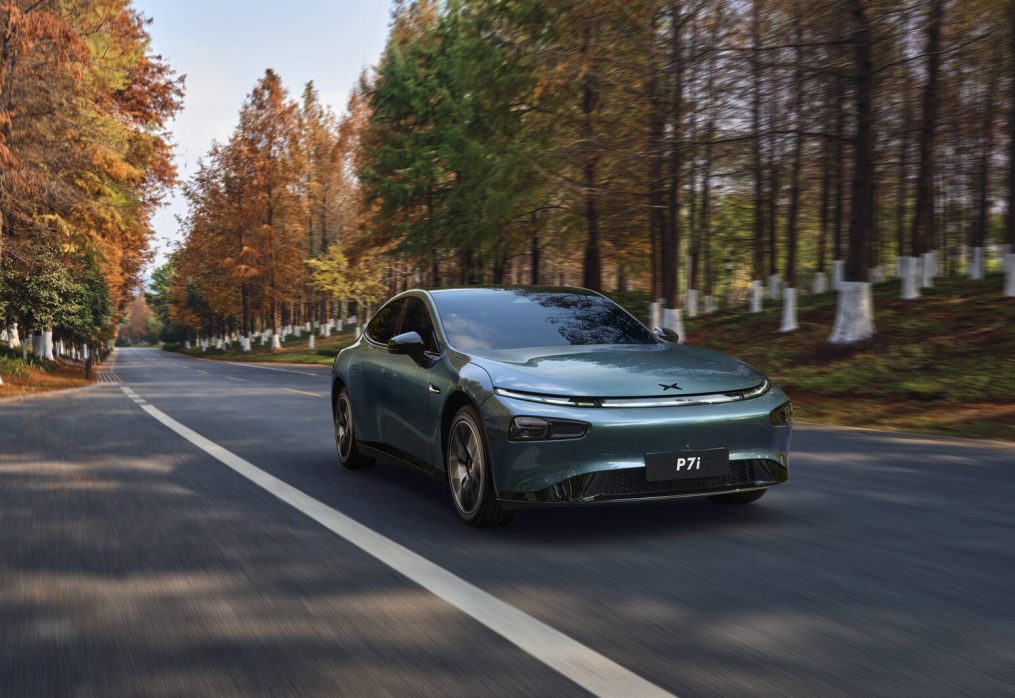Xpeng CEO expects 100,000 annual new EV sales through Didi partnership

Xpeng Motors chief executive He Xiaopeng said on Monday that he anticipates annual sales for an upcoming model, co-developed with Didi Chuxing under a new brand, to reach 100,000 units, in an unexpected partnership between the electric vehicle maker and the ride-hailing platform.
Why it matters: The move marks Xpeng Motors’ latest effort to expand its product lineup and extend its brand reach into the fleet market. The alliance is expected to help Xpeng significantly reduce costs and generate economies of scale in the production of highly autonomous cars, said He.
- While the deal will help Xpeng accelerate its EV manufacturing growth and facilitate the development of self-driving technologies with more driving data, it can help Didi monetize its smart auto segment and attract drivers with vehicles suitable for ride-hailing, Bernstein analysts wrote on a Monday note.
- Nonetheless, doubts were voiced over Xpeng’s ambitious sales goal, citing limited market size and fierce competition. “BYD was the only OEM (Original Equipment Manufacturer) to deliver more than 100,000 units, and the remaining top players all have their own ride-hailing affiliates,” wrote Bernstein analysts.
Details: Speaking to Chinese reporters during a media briefing, CEO He expressed confidence in the forthcoming A-class sedan, scheduled for production next year. He believes the model will enhance Xpeng’s performance, but does not specify a timeframe for his annual sales volume goal. The company delivered 41,435 EVs for the first half of this year with six namesake-branded models on sale.
- The EV startup is currently developing the model with assistance from Didi under a project codenamed Mona. He believes that this could become “a hit product” featuring Xpeng’s self-driving technology at an expected price tag of around RMB 150,000 ($20,594).
- The compact sedan will also be the first model under a new mainstream sub-brand, which He said will be positioned to target the Chinese consumer EV segment while also facilitating Xpeng’s expansion within the fleet market segment.
- As part of the collaboration, Xpeng will acquire Didi’s smart EV business, which comprises the design, research, and development of EVs with intelligent features. This acquisition will be accomplished through the issuance of approximately HK$5.84 billion ($744 million) worth of new shares to Didi.
- China’s biggest ride-hailing service will become a strategic investor in Xpeng with a stake of 3.25% after the deal, helping take Xpeng’s newly branded EVs nationwide via its strong shared mobility market, according to a statement.
- In Hong Kong, Xpeng’s shares surged 10.9% to HK$72.2 on Monday following the announcement.
Context: The news comes a month after Guangzhou-based Xpeng announced a collaboration with Volkswagen to jointly launch two VW-branded B-class EVs in 2026. B-class vehicles are normally larger than A-class vehicles and have larger engines.
- Xpeng is not the only Chinese EV maker exploring new brand options to reach a wider customer base. Rival Nio has recently made notable progress in the development of two entry-level brands codenamed Alps and Firefly, with both scheduled for launch in 2024.
- Didi initially had ambitious plans for its carmaking business, assembling a team of 1,700 employees dedicated to working on the project, with the aim of releasing a consumer EV in mid-2023, multiple Chinese media outlets reported. It even launched a battery-electric hatchback tailor-made for ride-hailing in collaboration with BYD in November 2020, Bloomberg reported.
- However, the ride-hailing giant had been under an 18-month investigation for alleged national security issues which began right after its mega-public listing on the New York Stock Exchange in June 2021. Meanwhile, Chinese authorities have imposed strict regulations on the release of EV production licenses in recent years.
READ MORE: What to expect from Volkswagen and Xpeng’s new partnership
Jill Shen is Shanghai-based technology reporter. She covers Chinese mobility, autonomous vehicles, and electric cars. Connect with her via e-mail: jill.shen@technode.com or Twitter: @yushan_shen
More by Jill Shen


